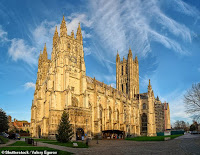Although the idea was expressed by Classical authors, it was John of Salisbury (c.1110 - 1180) who actually coined the term theatrum mundi, "theater of the world," in his Policraticus. The context of the phrase is when he says saints "despise the theater of this world from the heights of their virtue."
The Policraticus (the title is a mix of Greek and Latin words and is sometimes translated as "The Statesman's Book" is a moral encyclopedia in which John lays out his political theory in a vein similar to the Mirrors for Princes. Its subtitle is more revealing: De nugis curialium et vestigiis philosophorum, "On the Frivolities of Courtiers and the Footprints of Philosophers."
His chapters are laid out thusly:
- Book I: Hunting, theatre, and magic
- Book II: Omens, dreams, and occult sciences
- Book III: Self-interest and flattery
- Book IV: The duties of the 'prince'
- Book V and VI: The body politic
- Book VII: Three Epicurean tendencies (according to Boethius)
- Book VIII: Another two Epicurean tendencies; Tyranny
John felt that, since a monarch on earth was the image of God, acts against the ruler were to have strict punishments; however, the monarch's power was delegated by the spiritual power of the Church. John became secretary to Archbishop of Canterbury Thomas Becket and supported Becket in his dispute with Henry II.
In the final book of the Policraticus, John advocated for tyrannicide. A prince would obey and support the laws of his country, and all would be well so long as he keeps religion inviolate. A tyrant on the other hand does not recognize his proper rôle in the drama of the theatrum mundi and resists divine law, and in such a case death is appropriate. Julian the Apostate, for example, who tried to return Rome to the pagan religion from Christianity, was deserving of death according to John.
John's career took off when he was introduced to Archbishop of Canterbury Theobald of Bec (Becket's predecessor) and became his secretary. This took place at the Council of Reims, called by Pope Eugene III to deal with a variety of issues. We'll check out these issues tomorrow.
*from As You Like It






